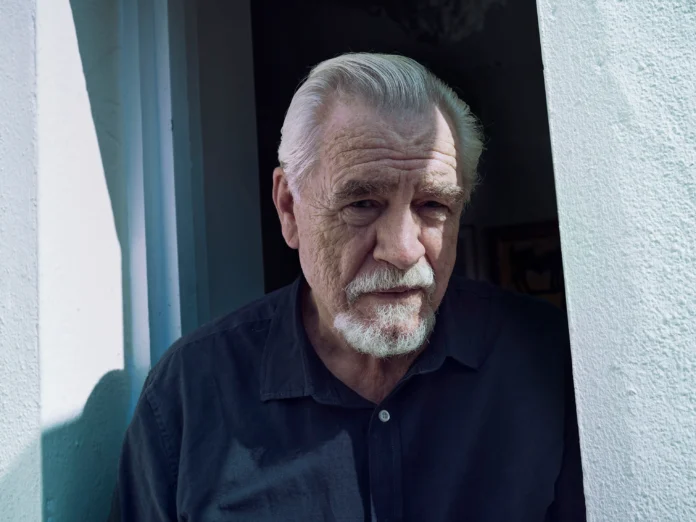The ‘Succession’ star spoke about the MCU on a panel at the Edinburgh International Film Festival on Saturday: “They go down that road and it’s box office. They make a lot of money. You can’t knock it.”
by Lily Ford
Brian Cox thinks cinema is “in a very bad way,” with the Marvel and DC Universes partly to blame.
The legendary actor of stage and screen — who most recently garnered critical acclaim for his award-winning role in HBO’s Succession — spoke at an Edinburgh International Film Festival panel on Saturday. When asked about the recent critical success of globally popular TV shows, Cox cited the latest MCU installment Deadpool & Wolverine as a great example of cinematic “party time.”
“What’s happened is that television is doing what cinema used to do,” Cox told the audience of television’s originality. “I think cinema is in a very bad way. I think it’s lost its place because of, partly, the grandiose element between Marvel, DC and all of that. And I think it’s beginning to implode, actually. You’re kind of losing the plot.”
He discussed Ryan Reynolds and Hugh Jackman of Deadpool & Wolverine while referencing how films are “making a lot of money that’ll make everybody happy, but in terms of the work, it becomes diluted afterwards. You’re getting the same old … I mean, I’ve done those kind of [projects].”
Cox starred as William Stryker Jr. in X2: X-Men United (a military scientist who persuades Logan to become Wolverine), and admittedly said he “forgets” about the fact he “created” Wolverine. “Deadpool meets the guy … Wolverine, who I created, but I’ve forgotten. Actually,” he joked, “when those films are on, there’s always a bit of me [as Stryker] and they never pay me any money.
“So it’s just become a party time for certain actors to do this stuff,” Cox added. “When you know that Hugh Jackman can do a bit more, Ryan Reynolds … but it’s because they go down that road and it’s box office. They make a lot of money. You can’t knock it.”
Television is pulling ahead, he continued, with incredible shows like Jesse Armstrong’s Succession and Netflix’s Ripley, starring Andrew Scott. “There’s so many [shows] and you’ve got the honor of telling the story over a period of time.” The actor said movies of his childhood such as On the Waterfront are what made him want to “be the actor I’ve become,” but it’s partially eradicated.
Cox spoke briefly about growing up in Dundee, Scotland, where there were 21 theaters in the city. “From the ages of 6 to 8, I visited all of them.” He contrasted the filmmaking of his day with the challenges of modern casting processes for actors now.
“Now, they want every young actor or actress to make their own self-tapes. They’ve got to make it without actually meeting anybody, and sometimes they never even get the fucking result, because they get ignored. They spend three days making a self-tape, which goes nowhere.” Casting directors and actors used to “have a rapport,” Cox said, so budding professionals in the industry had a sense of where things were going. “Whereas now, young actors are in limbo and it’s disgusting, quite frankly, because it actually stops what an actor can do or who an actor is.
“It’s a terrible, terrible system. I wish it stopped. I wish we could get back to the individual relationship and that’s what art is about. It’s about relationships.”
The panel Cox was speaking on was moderated by Rowan Woods, director of the Edinburgh TV festival, and included panelists Alex Walton of WME, producer Afolabi Kuti, ventriloquist-turned-director Nina Conti, and director Daniel Reisinger, who spoke to The Hollywood Reporter on Friday. The theme was how those in live performance and television can successfully transition to filmmaking.
Cox even revealed he is working on his own directorial debut, a piece of work he described as “a love letter to Scotland.” He said he has a lot of respect for directors, such as Mark Mylod, who worked on Succession. But being a good director requires the relinquishing of control, Cox added. “When you’re thinking about 50 million things, and someone says, ‘What do you want for her to wear? This or this?’ I don’t give a shit. Whatever she’s wearing. It’s fine, you know? That’s the thing about allowing people to do their job.
“If you’ve got a production designer, don’t get in their way. If you’ve got a makeup artist, don’t get in their way. They’re there for a reason, and they’re there to join the community and offer what their skill is. I think there’s too much control that goes on. Because control is the death of any art form, because it’s not about control, it’s about things that flow, things that move, you know?”

